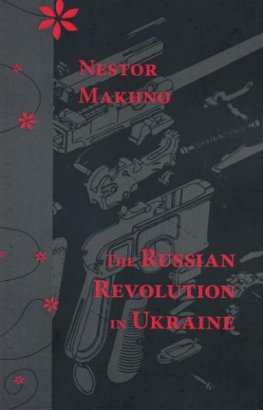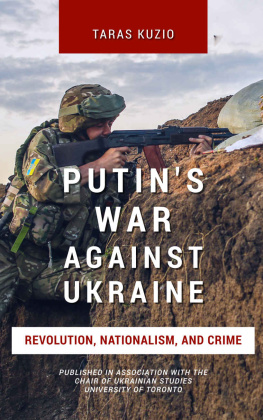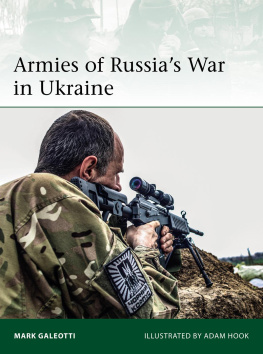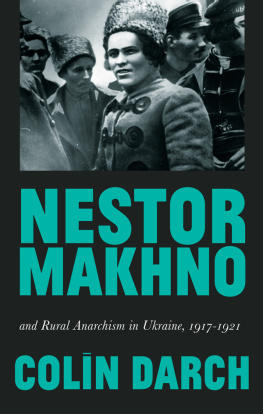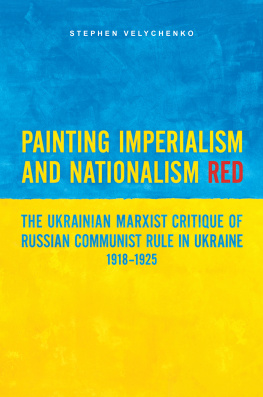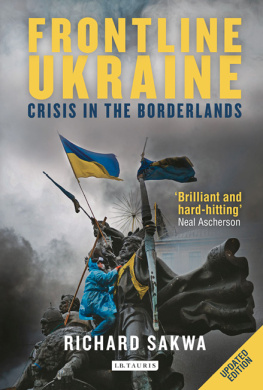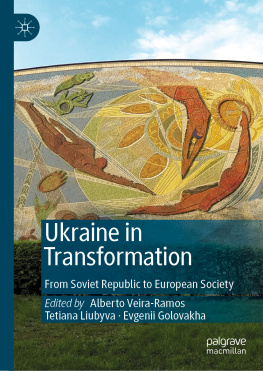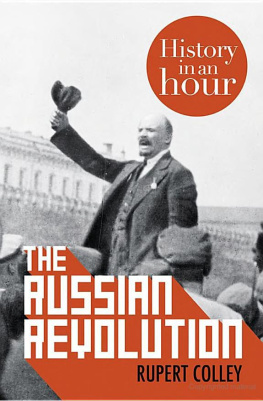Table of Contents
Levko Maystrenko
15 December 192520 June 2010
Dedicated to the memory of Levko without his support and solidarity the republication of his fathers book would not have been possible.
Ivan Maistrenko
28 August 189918 November 1984

Acknowledgements
The author records his affectionate gratitude to his friend Edward Dune, a noble fighter for freedom in Soviet Russia, who died in Paris on January 21, 1953. Mr. Dune assisted the author in locating rare source materials in the Bibliotheque de Documentation Internationale Contemporaine and the Bibliotheque Nationale in Paris.
The author wishes to thank the Research Program on the U.S.S.R., through whose assistance this study was made possible. Special thanks go to Dr. Alexander Dallin, former Associate Director of the Research Program, for suggesting the theme of the present study. The author thanks Dr. John S. Reshetar, Jr. of Princeton University for reading the manuscript, Dr. George S.N. Luckyj of the University of Toronto, who made the original translation, and Mr. Ivan L. Rudnytsky for his assistance in the translation and editing. Mr. Peter Dornan of the Research Program edited the text; the author is particularly grateful to him for this work. He also thanks Mr. Nelson Glover, who prepared the map.
The authors thanks are extended to the Ukrainian Academy of Arts and Sciences in the United States and in particular Mr. Volodymyr Mijakowskij for his and their cooperation in providing photostatic copies of source materials, and to Mr. Hryhory Kostiuk and Mr. Jurij Lawrynenko for reading the biographical material and supplying additional data.
Grateful acknowledgment is made to the Columbia University Press and Mr. Bertram D. Wolfe for permission to reprint excerpts from copyrighted material in Mr. Wolfes article The Influence of Early Military Decisions upon the National Structure of the Soviet Union, which appears in The American Slavic and East European Review, New York, Vol. IX, No. 3, October 1950, pp. 169179.
Foreword
MARKO BOJCUN
This new edition of Ivan Maistrenkos 1954 study of the Ukrainian Revolution is a welcome and timely contribution to the English language literature. Appearing on the centenary of that epochal event that has come to be known as the Russian Revolution it provides valuable insights into its multinational and regional complexities and the diversity of the communist movement itself. Christopher Ford has also given us a new introduction here that will help the reader situate Maiestenkos work in the broader context of a modern Ukraine emerging from an era of declining European imperialisms and ascendant movements for universal emancipation.
Maistrenko was not just a witness, but an active participant in the revolution and civil war of those years in Ukraine. He challenges several misleading generalisations and stereotypes that have come to dominate the historiography of 1917 and its aftermath. First, he shows on the basis of the Ukrainian case that this revolution was not Russian alone, nor just a working class achievement, but a richly diverse festival of the oppressed that broke out all over the Empire and drew into action millions of peasants and workers, nations and national minorities subjugated by Tsarism and Russian imperialism. It was not merely the arena of professional revolutionaries pursuing state power in Petrograd and Moscow, but the efforts of workers, soldiers and peasants in cities, towns and villages alike trying to overcome the major obstacles to their self-emancipation: the War, land hunger, the collapse of industry brought on by the War and national oppression.
Maistrenko illuminates this tumultuous process in Ukraine, focussing in particular on the rural population, the landless peasantry and the agricultural proletariat. He traces the evolution of the Ukrainian Party of Socialist Revolutionaries, which became the largest political party by far in Ukraine at the head of repeated mobilisations of the peasantry in 1917 and during the civil war. He shows how and why the UPSR, a party with roots in the populist and anarcho-socialist traditions, was shaken and split by the events of that period and eventually yielded the Borotbisty, an indigenous Ukrainian communist movement.
Maistrenkos work helps us to understand how the Ukrainian Revolution differed from the Russian as well as how they intersected, and how the Bolsheviks could come to hold state power in Ukraine at the end of the Civil War only by occupying it militarily and subordinating all three communist parties then operating in it to the Russian Communist Party headquartered in Moscow.
The Ukrainian Communist Party (Borotbisty), as opposed to the Communist Party (Bolsheviks) of Ukraine, fought for an independent Ukrainian soviet republic allied through federation with the Russian soviet republic. It sought membership as an independent party in the Third (Communist) International. The Borotbisty subsequently played a critical role in the life of their country after their own party was dissolved and they joined the official CP(B)U. They championed Ukraines cultural revival and its quest for greater political autonomy within the Soviet Union. Practically all of them perished in Stalins purges in the 1930s.
Ivan Maistrenko was one Borotbist who survived to tell their story, a chapter in the history of the Revolution that might otherwise been buried in Stalins mass graves. Moreover, he has left us with more than a political history, but also a personal one with recollections of events he witnessed on the ground and of comrades with whom he worked in the underground, the peasant brigades and the insurgent republic of his own locality. Maistrenko was fluent in Ukrainian and Russian, as well as German by the time he wrote this history. That gave his access to the original documentary sources when he came to compose this study in the early 1950s.
We can now look back on the epoch-changing upheaval of the Revolution a hundred years ago through Maistrenkos unique examination of its eruption in Ukraine.


